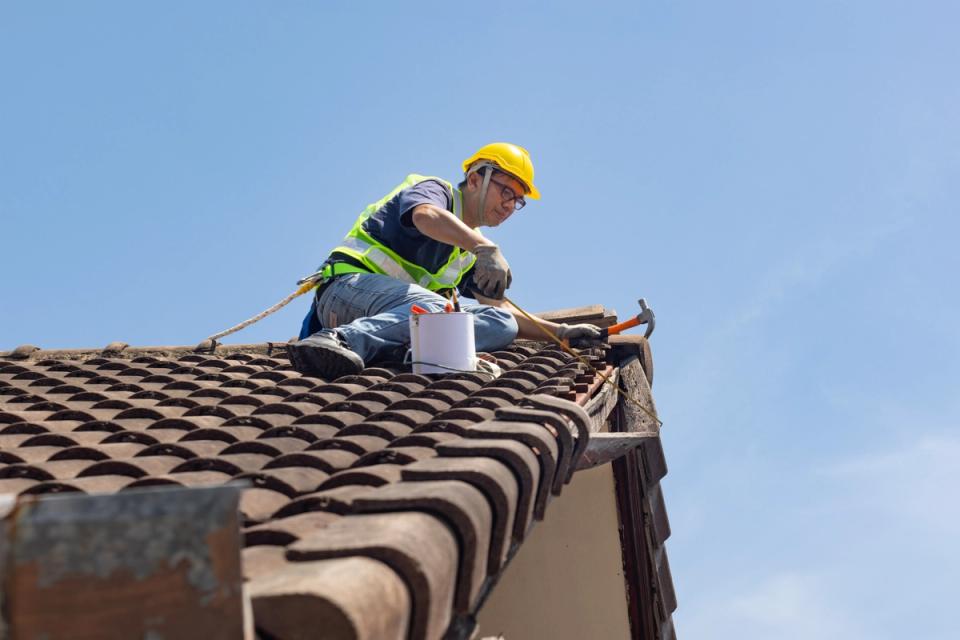
When choosing a roofing material, homeowners should prioritize durability and performance to ensure long-term protection for their homes. A well-selected roof can withstand weather elements, reduce maintenance costs, and enhance property value. Comparing the longevity and resilience of different materials helps homeowners determine the best fit for their needs.
This article explores the most durable roofing materials, their expected lifespans, and factors that influence their performance, helping homeowners make an informed investment in their homes.
Factors Affecting Roofing Longevity
Several factors influence how long a roof will last, such as:
- Material Quality: Higher-quality materials generally last longer and require fewer repairs.
- Climate and Weather Conditions: Extreme temperatures, heavy rainfall, and high winds can impact a roof's durability.
- Installation Quality: A properly installed roof will perform better and last longer than one with poor craftsmanship.
- Maintenance Requirements: Regular inspections and timely repairs can extend the life of any roof.
- Roof Slope and Design: Some materials perform better on steep-sloped roofs, while others are ideal for flat roofs.
Most Durable Roofing Materials
Asphalt Shingles
- Lifespan: 20–30 years
- Pros: Affordable, easy to install, widely available
- Cons: Prone to damage from extreme weather, requires periodic maintenance
Asphalt shingles are one of the most popular roofing materials due to their affordability and ease of installation. While they provide adequate protection, they may not last as long as other roofing options. High-quality architectural shingles can improve durability compared to traditional three-tab shingles.
Metal Roofing
- Lifespan: 40–70 years
- Pros: Energy-efficient, fire-resistant, withstands extreme weather
- Cons: Higher upfront cost, may require specialized installation
Metal roofs, including aluminum, steel, and copper, offer impressive durability and weather resistance. They reflect solar heat, reducing cooling costs in warmer climates. While the initial investment is higher, their longevity and low maintenance requirements make them a cost-effective choice in the long run.
Clay and Concrete Tiles
- Lifespan: 50–100 years
- Pros: Extremely durable, fire-resistant, aesthetically appealing
- Cons: Heavy weight requires reinforced roofing structures, higher installation costs
Clay and concrete tiles provide a classic, elegant look while delivering long-lasting durability. They are resistant to fire, pests, and harsh weather conditions. However, their weight demands a strong roofing framework, and their cost is higher than many other materials.
Slate Roofing
- Lifespan: 75–200 years
- Pros: Natural appearance, unparalleled longevity, eco-friendly
- Cons: Expensive, requires specialized installation, heavy material
Slate is one of the longest-lasting roofing materials available, making it a premium choice for homeowners seeking durability and timeless beauty. With proper maintenance, a slate roof can last for generations. However, its high cost and weight require careful consideration before installation.
Wood Shingles and Shakes
- Lifespan: 25–50 years
- Pros: Natural beauty, eco-friendly, moderate insulation properties
- Cons: Prone to mold, insect damage, and fire risk if untreated
Wood shingles and shakes provide a rustic aesthetic and good insulation, making them appealing to many homeowners. While they can last several decades with proper care, they require regular maintenance to prevent moisture damage and pest infestations.
Synthetic Roofing Materials
- Lifespan: 40–60 years
- Pros: Lightweight, durable, mimics natural materials, cost-effective
- Cons: Quality varies, may fade over time
Synthetic roofing materials, such as composite slate and rubber shingles, offer an affordable alternative to traditional materials while mimicking their appearance. They provide good durability and resistance to weather conditions but may not have the same lifespan as natural materials.
Choosing the Best Roofing Material for Your Home
The right roofing material depends on several factors, including budget, climate, and aesthetic preferences. Here are some key considerations:
- Budget: Asphalt shingles are the most affordable option, while slate and clay tiles come with a higher price tag.
- Climate Compatibility: Metal roofs perform well in extreme weather, while slate and tile excel in regions with minimal temperature fluctuations.
- Maintenance Needs: Homeowners who prefer low-maintenance roofs should consider metal or synthetic materials over wood or asphalt.
- Aesthetic Appeal: Choose a material that complements the architectural style of your home.
- Environmental Impact: Solar roofing or recycled materials can enhance energy efficiency and sustainability.
When to Replace Your Roof
Knowing when to replace a roof is essential for preventing structural damage and costly repairs. Common signs indicating the need for a replacement include:
- Frequent Leaks: Persistent leaks suggest underlying structural issues.
- Shingle Damage: Cracked, curling, or missing shingles reduce a roof’s effectiveness.
- Sagging Roof Deck: A drooping roof can signal moisture damage and compromised integrity.
- Moss and Algae Growth: Excessive growth can trap moisture and accelerate deterioration.
- Age of the Roof: If a roof is approaching the end of its expected lifespan, a replacement may be more cost-effective than repairs.
Final Insights on Roofing Durability and Performance
Choosing a suitable roofing material impacts a home’s durability, energy efficiency, and resale value. While some materials require a higher upfront investment, their extended lifespan and reduced maintenance costs make them a worthwhile choice. By considering climate, budget, and maintenance requirements, homeowners can make an informed decision that ensures their roof provides protection for decades to come. Consulting a professional roofing contractor can help homeowners assess their options and determine the best solution for their needs.